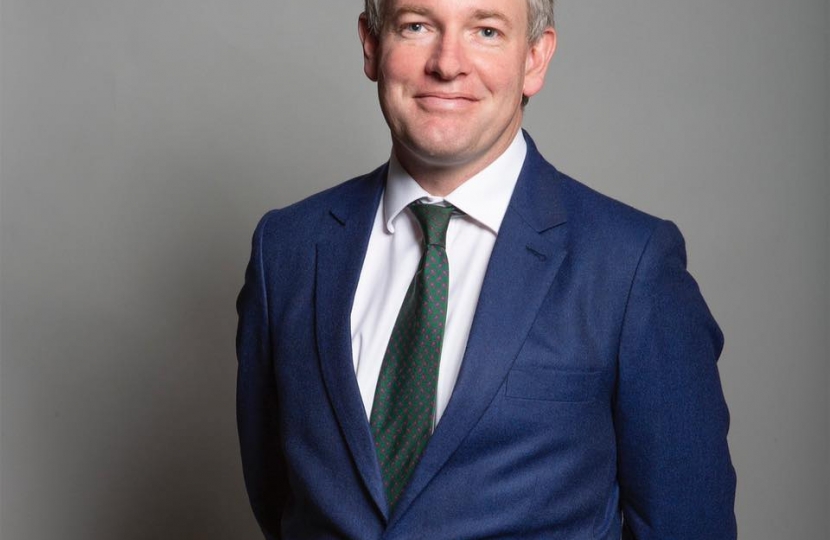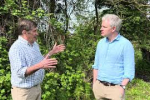
I’m glad I waited till today, Sunday, to write my weekly newsletter as last night we had a helpful letter from the Prime Minster. I was thinking how to explain the fact that Wiltshire is leaving the national lockdown on Thursday with more restrictions than when we entered; and that if the Commons approves them on Tuesday, these restrictions could potentially apply till Easter without MPs having a chance to change them.
I was also unclear what measures would be used to determine our exit from the restrictions. This was a point I made in a question to the Prime Minister on Monday, which you can see here, and also in a call on Friday with the data scientists at No 10.
The PM’s letter (which you can read here) addresses these concerns. It explains the measures used to decide on an area’s tier, and commits the Government to a public explanation of the circumstances needed for an area to move down a tier. It holds out the prospect of some areas moving down on 16 December, though it is likely this will focus on some Tier 3 areas moving down, rather than Tier 2 areas like Wiltshire - but we can hope, and I will push. The letter also states that Parliament will have the chance to approve or reject any continuation of the measures on 3 February.
I appreciate that many constituents are furious that Wiltshire, like much of the country, will still endure significant restrictions on economic and social activity for some months. I also deeply regret the decision and wish it were otherwise - especially for our pubs and bars. But I accept that the scientific consensus strongly supports continued restrictions and I will vote with the Government on Tuesday. I am also aware that many constituents are also supportive, and indeed wish for more aggressive measures to contain the pandemic.
This week saw the long-awaited Spending Review. The Chancellor referenced the expected bad tidings for the economy (published concurrently by the Office for Budget Responsibility), and therefore included some very painful but necessary spending cuts, principally to foreign aid and public sector pay. As I explained in this short article, we are able to reduce these budgets because both have risen significantly in recent years. I am confident we will soon be able to resume the strong annual growth in both aid and pay.
I was particularly pleased with the announcement of the Levelling Up Fund, aimed to support what Rishi Sunak called the ‘infrastructure of everyday life’, like libraries and local transport systems. This is something I called for in my report earlier in the year.
I spoke in three debates in Parliament this week. On local government finance (see here) I thanked Wiltshire council workers for their heroic work during 2020 and reminded ministers of the £29m funding shortfall that Covid-19 has left in the council’s budget - despite the significant additional money the Government has made available.
I spoke in a debate on religious freedom during the pandemic (see here) and expressed my view that the ban on church services had been one of the worst aspects of the lockdown - and was, possibly, unconstitutional. I am very glad that these can resume from this week.
And I made a speech about the work of the Department for Work and Pensions this year (see here). Given all the many and well-covered dysfunctions in our public systems this year, it is notable that DWP managed to process 3.2 million new claims for Universal Credit - a doubling of the caseload - without any problems.
Have a good week.
Danny





